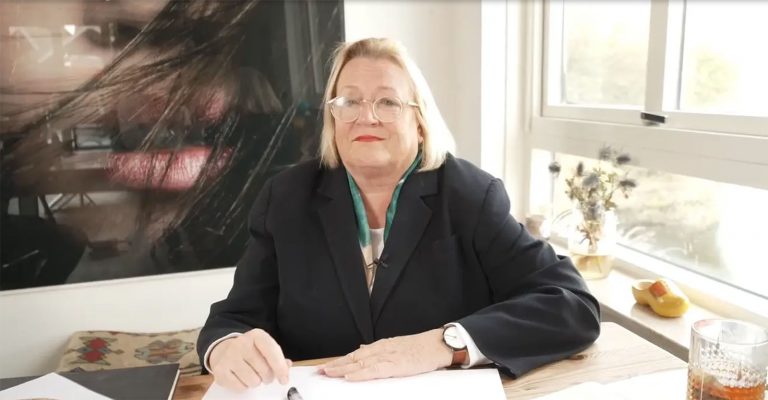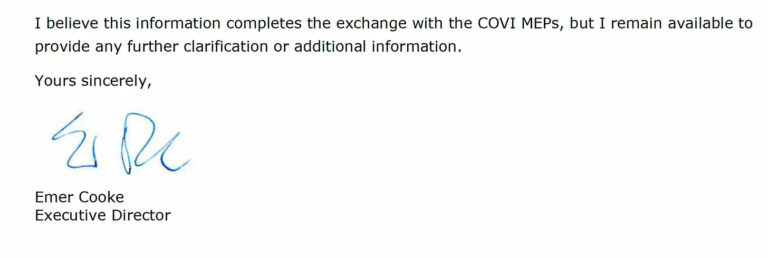WHO Pandemic Treaty Is ‘An Assault on Our Freedoms’: MP

A British MP has warned that a proposed Word Health Organisation (WHO) treaty on pandemic prevention and preparedness represents “an assault on our freedoms” and would create a “vast public health surveillance mechanism.”
On Monday, MPs debated whether the government should hold a referendum on the UK’s involvement in the WHO pandemic treaty (pdf).
The debate was prompted by a petition on the subject that gathered over 156,000 signatures.
In 2021, global leaders made “an urgent call” for an international pandemic treaty that was co-signed by former Prime Minister Boris Johnson.
The WHO said that such a measure would signal “high-level political action needed to protect the world from future health crises.”
New International Treaty
However, the treaty has been met with suspicion and concern by some who believe that it would hand more powers and sovereignty to the WHO.
Opening the debate, Conservative MP Nick Fletcher said that “there is a push for the WHO to gain policing powers over pandemic responses, and our government need to seriously look into that.”
Conservative MP Danny Kruger said that during the COVID-19 pandemic, there was an “excess of global collaboration and not enough independence, and certainly not enough parliamentary scrutiny.”
“I am challenging the proposed regulations and treaty, because they are wholly and fundamentally wrong, and they represent an assault on our freedoms,” he said.
Kruger mentioned that he had been working with the campaign group UsForThem, which represented children and young people during COVID-19 lockdowns, that is “now very concerned about what the WHO’s proposal might mean for the most vulnerable people in our society.”
Kruger said that we “need cooperation and strategic vision, but no, we do not need ever more centralised solutions.”

He claimed that the regulations propose the “creation of a vast public health surveillance mechanism at public expense.”
“If the WHO itself is anything to go by, that would be substantially funded by the pharmaceutical industry,” he added.
This, he said, “amounts to a vast transfer of power to the WHO.”
He said that some of these new regulations would include enabling legally binding obligations on countries to mandate financial contributions to fund pandemic-response activities.
These regulations could “override national safety approval processes for vaccines, gene-based therapies, medical devices, and diagnostics,” he said.
WHO’s Powers
Kruger also said that the WHO’s powers will “potentially” extend to ordering countries to close borders, restrict travel, trace contacts, and refuse entry to countries.
He said that this could lead to forced quarantining, medical examinations, proof of vaccination, and “the forced medication of individuals.”
“It is not just when a pandemic has already been declared that those powers might be invoked; the WHO claims these powers when there is simply the potential for such an emergency,” he said.

Independent MP Andrew Bridgen said that he was “really worried whether colleagues have actually read the treaty.”
“Because clearly when we take out the words ‘not binding’ through an amendment, it becomes binding. These are binding treaties: if we do nothing, they are binding, legally binding across all the nations,” he said.
Labour MP John Spellar said there is a “poisonous cesspit of the right-wing conspiracy theorist ecosystem in the United States” and that “we already have international bodies dealing with some issues.”
“I am a huge supporter of our alliance with the U.S., but within it, there is an appalling subculture of those who live by conspiracy theories,” he added.
Spellar said that treaties are a “part of engaging with the world, unless we want to be North Korea and have a policy for hermits.”
“What we are seeing is overreaction and hysteria,” he added.
‘Opposite of What Is Needed’
Alan Miller, co-founder of the Together Declaration, who has campaigned for civil liberties during COVID-19 lockdowns, told The Epoch Times by email that nation states “need to democratically decide upon what is needed.”
“The idea that amendments to pandemic preparedness being pushed by the World Health Organisation—known as International Health Regulations—should become the go-to position of all nation states is beyond ridiculous. Nation states need to democratically decide upon what is needed,” he said.
“In Britain, we had a perfectly adequate pandemic preparedness strategy but it was jettisoned to impose damaging unnecessary lockdowns and restrictions that we are all still suffering from now,” he added.
Miller said that while nations will have to ratify any amendments, the “fact that one person can deem what is ‘necessary’ at the WHO and next thing it’s everywhere is the opposite of what is needed.”
“At Together we shall continue to insist on cost-benefit analysis for any measures, parliamentary scrutiny, transparency, and the public being at the heart of matters, including freely discussing and criticising things,” he added.
Molly Kingsley, co-founder at UsForThem, told The Epoch Times by email, “MPs retreating to a recital of past WHO achievements in unrelated fields whilst slinging mud at those asking challenging questions appear to be blind to the changing nature of WHO funding and conflicts.”
In March, the government said that the UK’s position on the exact substance of the treaty “remains to be seen as negotiations continue.”
Originally published by the Epoch Times
Suggest a correction





